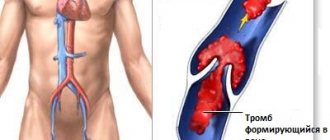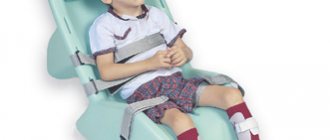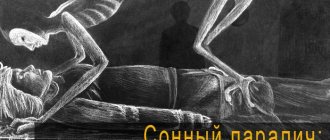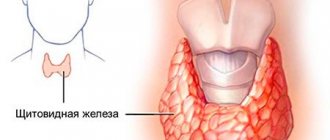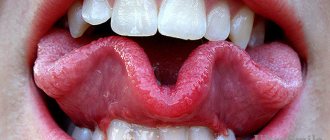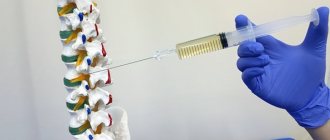January 17, 2021
Cramps are uncontrollable contractions of the leg muscles that appear unexpectedly. As a rule, they appear in the evenings before going to bed or in the morning after waking up. Based on the duration of the manifestations, there are short ones, lasting a few seconds, and long ones, the duration of which can be up to 15 minutes. If they are single in nature, they do not cause serious problems. However, they lead to discomfort, disruption of rest and muscle function. With repeated repetitions and the appearance of pain, they serve as a separate symptom indicating a number of diseases.
From this article you will learn the reasons why your calves cramp in the morning, what first aid should be given for cramps, treatment and prevention.
Causes of seizures
Morning cramps that do not require medical intervention include involuntary contractions that occur when:
- keeping the body and legs in an uncomfortable position for a long time;
- wearing ill-fitting, uncomfortable shoes;
- lack of water in the body, and vice versa, excess fluid;
- lack of vitamins and microelements in the body;
- lack of physical activity, and vice versa, excess of it;
- being in all sorts of stressful situations;
- excessive alcohol consumption, smoking.
If the pain is recurring and manifests itself, it is necessary to consult a doctor, since muscle spasms may indicate a number of diseases, such as:
- varicose veins, other manifestations of venous pathologies, such as atherosclerosis, venous insufficiency;
- disruption of the heart;
- thyroid disease or deficiency;
- kidney pathologies;
- infectious diseases;
- excess body weight.
In this case, after a series of consultations and examinations of the body, treatment appropriate to the diagnosis is prescribed.
Why do muscles cramp?
Muscle cramps The cause of muscle spasm is often not easy to determine.
In a significant number of cases, we have to talk about idiopathic muscle contraction (i.e., there is no obvious cause of the spasm). Muscle cramps during sports
usually caused by excessive or unusual load on a muscle (muscle group), dehydration and loss of calcium and potassium through sweat, and improper training.
The fact that muscles cramp in sleep
, as a rule, is explained by poor body position during sleep. When we sleep, our body is generally relaxed, but certain muscle groups experience increased stress; a long stay without movement does not allow this load to be redistributed to other muscles, which can lead to muscle cramps.
Most susceptible to muscle spasms:
- athletes;
- pregnant women;
- elderly people (this is due to weakening of muscle tissue - muscle atrophy);
- small children (first 3 years of life).
Factors contributing to muscle contraction are:
- overweight;
- heat;
- intoxication of the body (in case of an infectious disease, alcohol intoxication, etc.)
- certain medications (for example, hormonal contraceptives);
- leg diseases and some other diseases (liver cirrhosis, diabetes mellitus).
First aid for leg cramps
If your calves cramp in the morning and you need help, you can resort to the following actions:
- You need to pull the toe up towards your head. In this case, the muscles are stretched, not allowing contraction;
- If the spasms do not calm down, there is a need to get a massage. It is important to carry out carefully, without applying too much pressure;
- Bring the body position to a position in which the limb being abducted is above the head. This is necessary to reduce blood flow and muscle activity;
- Get out of bed and walk around;
- Take a warm compress. A dampened towel works great;
- Take a warm bath to relax your muscles.
Muscle cramps: should I see a doctor?
A one-time muscle contraction in most cases is not a cause for concern. However, if muscle spasms occur frequently enough, it may be a symptom of a developing disease. The range of possible diseases is quite wide; it includes vascular diseases (varicose veins), liver diseases, kidney failure, thyroid diseases, nervous system disorders.
It is necessary to consult a doctor when contracting muscles if:
- muscles cramp once a month or more often;
- muscle cramps are very strong (cause severe pain);
- muscle spasm has no obvious connection with physical activity;
- muscle pain does not go away after simple procedures (relaxation and massage).
Treatment
Depending on the diagnosis and further treatment, the attending physician prescribes medications. Some make up for the lack of vitamins and microelements - they influence the cause of the disease, others relieve spasms and improve well-being - symptomatic therapy is carried out. They are used together, complementing each other.
The most popular medications for treating calf muscle cramps are:
- Tablets containing microelements - Asparkam, Panangin, Magnerot, Magnelis B6.
- Vitamins - popular are Complivit, Alphabet, Calcium D3
- Ointments - Venuron, Venarum, Heparin ointment, Diclofenac. They affect the veins, improve blood circulation in the legs and relieve pain.
In addition to medications, physiotherapeutic methods are used, such as electrophoresis, magnetic therapy, laser therapy, ion therapy and others.
In older people
The reason for muscle contraction at night in patients over 60 years of age lies in the changes occurring in the body. Over the course of life, pathologies accumulate, the symptoms of which are pain in the calf muscles. They arise due to:
- damage to nerve endings innervating muscles;
- blood circulation disorders in the lower extremities;
- slow metabolism leading to a lack of B vitamins, potassium, calcium;
- decreased iron levels in the blood;
- degenerative-dystrophic processes in muscle tissue;
- fluid retention in the body.
Inflammations and injuries received in young and middle age “repeat” with paroxysms in old age. In old age, muscle spasms are provoked by medications taken in large quantities: statins, diuretics.
Prevention
In order to avoid night and morning cramps in the legs, it is important to remember to follow preventive measures to prevent the occurrence of cramps. They include:
- Maintaining a daily routine. The body needs proper rest and sleep at strictly defined hours;
- A healthy diet, food should include calcium - milk, cottage cheese, cheese, almonds; magnesium - buckwheat porridge, walnuts, legumes; potassium - dried apricots, raisins, beets, sunflower seeds
- As directed by the doctor, follow a diet, abstain from spicy, fatty, excessively sweet and salty dishes and foods;
- Periodic calf massage will improve blood circulation in the legs and relax the muscles;
- Wearing comfortable shoes will allow you to get an even load on the foot, helping to relieve and prevent tension in the muscles.
How to treat
Regular paroxysms of the calf muscles can be stopped using pharmaceutical drugs. Traditional healers advise fighting seizures with their proven methods.
Drug treatment
There are a number of medications available to relieve muscle spasms. Their action is aimed at eliminating convulsive symptoms and pain. Tablets of Levetiracetam, Pregabalin, Trental are used after a doctor’s prescription for neurotic conditions.
If paroxysms are associated with a lack of microelements and vitamins, then Asparkam and Panangin are prescribed. To combat vascular disorders, which cause pain in tense muscles at night, you need to take the drugs Troxevasin and Venarus.
Ointments based on horse chestnut stimulate blood circulation and metabolic processes in the affected area. They are applied to the calves before bed, gently rubbing into the skin. It is known what to do if there is a deficiency of vitamins in organisms. The Dolgit and Complivit complexes will restore the conductivity of nerve impulses and prevent muscle spasms.
Physical methods
Among the main methods of relieving muscle tension at night is the effect of magnetic waves on the affected area. The magnetic therapy device normalizes the blood supply to tissues. The cells will receive sufficient nutrition and oxygen, and the convulsions will stop.
Relaxation of muscle tissue occurs under the influence of electric current and ultrasound. Used in cases where the leg is cramped, massage. Done regularly, it will relieve night pain. It is advisable to undergo a course of manual therapy to relieve the effects of frequent leg strain. The calf muscles will recover due to the normalization of blood flow in them.
A professional massage therapist will quickly relieve a seizure attack.
Folk remedies
Treatment with herbal preparations will have a beneficial effect on the condition of the limbs and will not cause side effects:
- Medicinal wormwood 30 grams is poured with boiling water into 400 ml. After infusion and straining, drink a quarter glass 3 times a day. For rubbing, you can use tincture of wormwood in alcohol.
- Take 1 teaspoon of chopped dill fruits, pour 300 ml of hot boiled water. Leave for an hour. Take half a glass or 1 gram of dry fruit powder three times.
- For smooth muscle spasms, mint tablets under the tongue help.
- Tincture of black henbane leaves is useful as an antispasmodic and analgesic. The medicine is prepared from 15 grams of raw materials and 100 ml of vodka. It is better to take 2 drops, diluting them in a tablespoon of water.
- Celandine juice is added to Vaseline and lubricated with the resulting caviar ointment in the evening.
- A pinch of salt is placed on the tongue and held for several minutes. The pain goes away instantly.
- Chamomile flower tea is beneficial for those who suffer from nighttime calf muscle cramps.
Any remedy based on medicinal plants is taken after consultation with a doctor. After all, they may have contraindications.
Excess of GM impulses
The “culprit” of seizures can also be the brain itself, sending unnecessary signals to the muscles. Patients with diseases associated with an increased level of brain impulses suffer from constant spasms:
- epilepsy;
- circulatory disorders in the vessels of the brain;
- infectious processes in GM tissues;
- intoxication;
- psychopathic disorders;
- eclampsia;
- GM tumors;
- spasmophilia.
An excess of impulses emanating from the brain can occur under the influence of caffeine and nicotine. Night cramps are often observed in people who abuse coffee, black tea, cocoa and chocolate, as well as in men and women who smoke.
What to do to eliminate unpleasant symptoms? First of all, you should give up bad habits and reconsider your diet.
If the reasons for severe cramping in your legs are not this, you need to consult a neurologist for advice.
Blood disorders
If you often have cramps in your calf muscles, the reason for this phenomenon most likely lies in an imbalance of important microelements that are actively involved in the process of muscle fiber contraction.
Biochemical and electrolyte blood tests will help identify the problem.
Calcium
Calcium ions
- irreplaceable elements that ensure muscle contraction. When nerves transmit commands to the brain, processes of a biochemical nature are activated on the surface of muscle fibers. They are transmitted inside, where, under their action, cisterns are launched that release calcium ions into the muscle cells. This substance, in turn, activates the convergence of special proteins in the tissue - that is, it contracts the calf muscle.
With a deficiency of calcium in the blood, this process occurs with significant disruptions due to increased excitability of the nerves that transmit false signals to the muscles at rest.
Magnesium
Magnesium in our body is responsible for the stable functioning of the nervous system. If there is not enough of this element in the blood, the nerve fibers begin to malfunction due to provoking an increase in the content of acetylcholine in muscle tissue.
Acetylcholine
- a substance that takes an active part in the transmission of nerve impulses from the brain to a specific muscle. This element is a kind of conductor for signals. Magnesium deficiency contributes to excessive accumulation of acetylcholine in nerve circuits and increased fiber excitability.
Most often, women suffer from a lack of magnesium during pregnancy - at this stage, the element supplied to the body of the expectant mother with food and multivitamins is “sent” in large quantities to the development of the fetus.
Potassium
Electrolyte imbalances can also lead to calf cramps. A lack of potassium in the blood plasma causes increased muscle tone, which, in turn, provokes occasional painful contractions.
Cramps caused by potassium deficiency occur at night and affect not only the calves, but also the feet.
Potassium losses are always closely related to magnesium deficiency, since these elements form a kind of functional pair. In addition to the occurrence of seizures, the lack of these substances causes disruption of the nervous (chronic fatigue, irritability) and cardiovascular systems.
Vitamin D
This element is necessary for the absorption of calcium. Even if the diet contains enough food rich in calcium, due to a deficiency of vitamin D, it will not be able to be absorbed into the blood.
A lack of both microelements will lead to spontaneous contractions of muscle fibers.
The reason for the lack of important microelements may be the use of antacid, sorbent or diuretic drugs, which wash out the necessary substances from the body.
Even having correctly formed our diet, we cannot fully provide the body with the necessary microelements. Modern food is poor in vitamins and minerals. In addition, the process of their absorption is affected by lifestyle: stress, smoking, alcohol, caffeine, and sweets impair the absorption of calcium, potassium and magnesium.
Circulatory disorders
Experts include the following diseases and pathological conditions of the lower extremities in this group of causes that provoke the occurrence of calf spasms:
- thrombophlebitis;
- varicose veins;
- endarteritis;
- vascular atherosclerosis.
Lack of blood supply to tissues or blood stagnation due to impaired venous outflow leads to an imbalance of potassium, sodium and magnesium. A deficiency of these microelements leads to increased nervous excitability of the muscles and causes spasms.
Spasms can be a signal of the development of dangerous vascular pathologies that require treatment.
In addition to the imbalance of microelements, disturbances in the blood supply to the lower extremities lead to a decrease in ATP levels. These are specific molecules that produce the energy necessary for muscle contraction and relaxation.
Their deficiency leads to disruption of the reaction mechanism - this is why convulsions occur.
Overvoltage
Overexertion of muscles during the day can cause both daytime and nighttime cramps. Long-term, without rest, muscle work occurs when:
- excessive physical activity;
- intense training;
- long walking or standing;
- running;
- overweight.
Women wearing even low heels creates an unnatural position of the foot, which stretches certain muscles of the lower leg. The increased load on this muscle leads to cramping in each leg at rest - at night or in the morning after sleep.
Important! Excessive loads on the calf muscles cause a decrease in the level of ATP in the structure of the fibers and the accumulation of lactic acid in them.
Another reason that affects the risk of seizures is flat feet.
Pathology of the arch of the foot leads to improper redistribution of loads from body weight to support. The calf muscles are actively involved in the balancing alignment process, overextended and subject to painful spasms.
